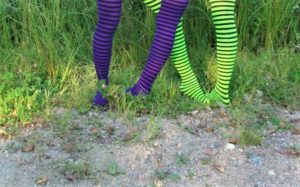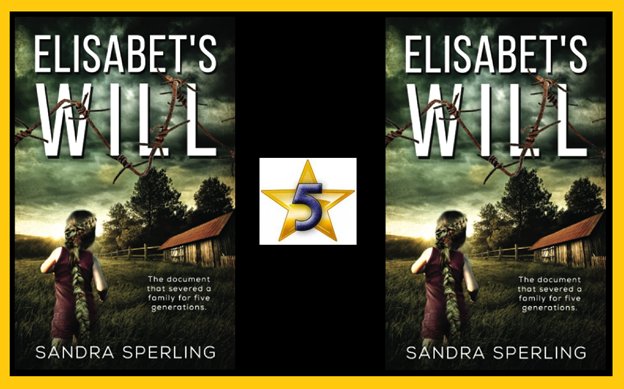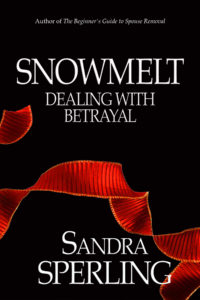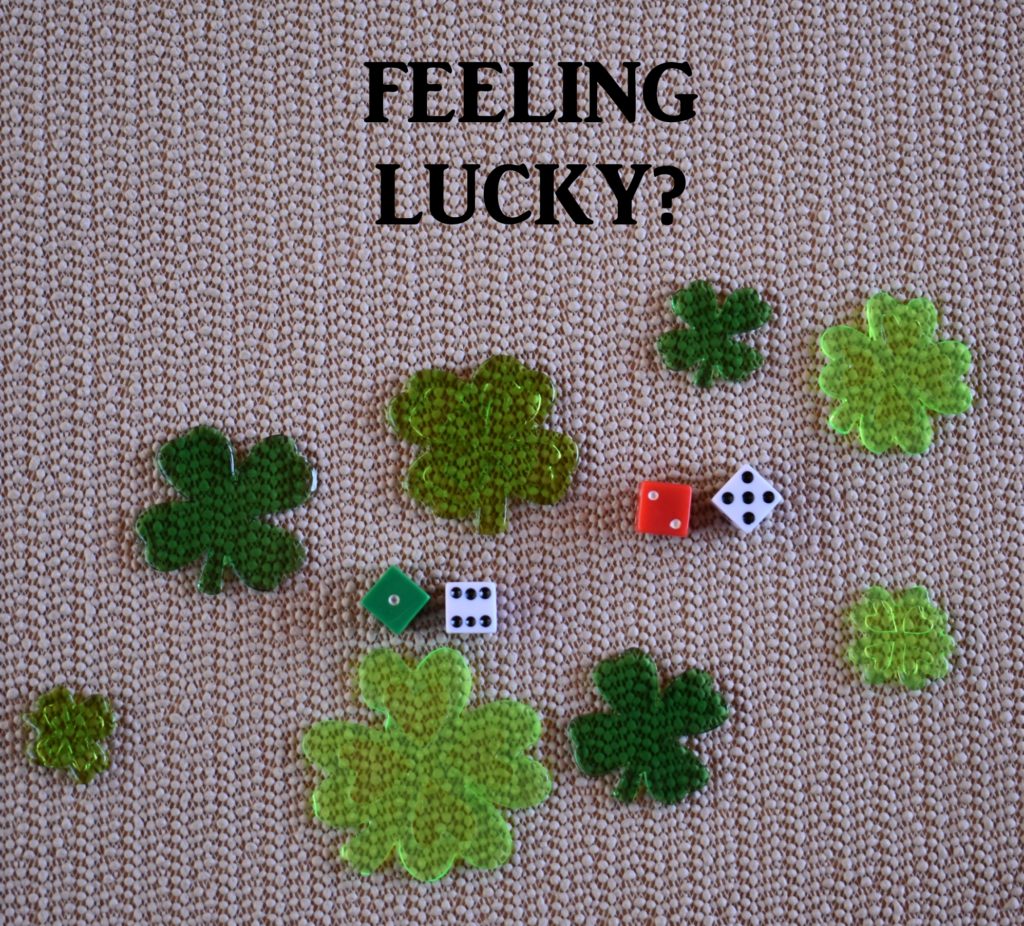By Sandra Sperling
Free download in printable form, or can be downloaded and emailed to your Kindle App – Download
 In May, Holly Freeman and her grandson, Trevor, spent much of their free time catching tadpoles in the drainage ditch by her mailbox. It helped the boy forget the tragic asphyxiation of his parents due to a faulty gas furnace, after which he’d moved in with Holly and Godfrey, his paternal grandparents, who were his only relatives in America. The reserved child took possession of his father’s former room, sleeping in a double bed heaped with brightly colored quilts to keep away the chill of Minnesota nights.
In May, Holly Freeman and her grandson, Trevor, spent much of their free time catching tadpoles in the drainage ditch by her mailbox. It helped the boy forget the tragic asphyxiation of his parents due to a faulty gas furnace, after which he’d moved in with Holly and Godfrey, his paternal grandparents, who were his only relatives in America. The reserved child took possession of his father’s former room, sleeping in a double bed heaped with brightly colored quilts to keep away the chill of Minnesota nights.
One Saturday, while Godfrey was working overtime at the car dealership, Holly was sitting on the family ATV (All-Terrain Vehicle) and collecting the mail, while Trevor scooped tadpoles into a pail. He was a well-mannered child, and she understood kids, having worked as a substitute elementary teacher for nearly twenty-five years. Now that she’d turned forty-four, however, her patience was taxed by students who were increasingly rowdy and unteachable, making her appreciate her grandson even more.
He crawled up the bank of the ditch and said, “I have about a hundred tadpoles.” He held the ice-cream pail forward for her to peek in.
“That’s enough. Cover them and we’ll head home.”
He did so and mounted the ATV behind her, clutching the pail tightly to his chest. She drove the mile to the house and continued through the balsam, red pine and poplar forest until they reached a small pond toward the back of their forty acres.
“I wonder what kind of frogs we’ll get.” Trevor poured the tadpoles into the water, standing on the muddy bank of the pond. He looked remarkably like his mother, resembling his father only in his long-fingered hands, which he now wiped dry on his jeans. Where Holly would have chastised her son for doing that, she’d mellowed and now ignored it.
“Probably a lot of leopard and bull frogs. That’s what I found when the ditch was part of the rice paddies.”
“Why aren’t the paddies being used anymore?” he asked.
“The owners started losing money, and the government came down on them for using fertilizers and pesticides that hadn’t been tested properly, or so they claimed. Finally, the owners just got too old.”
Can we still get in there?”
“I think so. We’ll go through the ditch by the mailbox, climb up the other side, and then we’ll be standing on a dike.”
“Can we go today?”
“No, there’s too much water. Muskrats have undermined the dikes, and some have collapsed. Most of the paddies don’t have more than a few inches of water in them, but the muck will suck you down like quicksand.”
“I can’t wait. I want to see what it looks like.”
“It probably won’t be till the middle of summer.”
# # #
It wasn’t until late in July that Holly and Trevor were able to scramble through the ditch. Holly carried a scythe and whacked away at the eight-foot tall reeds. They came to a section of dike covered with willow saplings and turned back. She cut through the tall grasses until they reached an area choked with cattails. A few small sections were free of plants, where Trevor gazed at the vast sheet of shallow water.
“Wow! That looks like a lake.” He took a step forward and dropped into a muskrat tunnel, plunging all the way to his crotch.
Holly grabbed him and pulled him out, but he lost a shoe in the process.
He peered into the mucky hole. “Oh crap! I can’t even see where my shoe might be.”
“I wouldn’t put my arm in there to get it, not even if those shoes were brand new,” she said. “There might be a big snapping turtle in there. Never come here by yourself.”
“I won’t.” The look on his face was so solemn that Holly believed him. The boy gave the paddies a final inspection, then trod warily back to the area they’d climbed up the bank. He slid down ahead of her.
Holly followed, using the scythe as a walking stick.
Trevor stopped short.
A large garter snake had coiled up in front of him.
Trevor sprang back, crashing into Holly.
The snake struck at him.
It missed by mere inches.
They retreated to the top of the dike, where Holly clung to Trevor’s trembling shoulders. The snake coiled up and glared at them, then turned and slithered away at the bottom of the ditch, heading toward the river. The creature was close to five feet long, by far the largest garter snake she’d ever seen.
“Grandpa said there weren’t any venomous snakes here.”
“There aren’t. That was just a garter snake. I’ve never seen one strike at a person!”
They stood on the edge of the dike and scrutinized the ditch for snakes, then tore through it like a cougar was after them. When they related the story to Godfrey that evening, he didn’t believe them.
“Only a rattlesnake strikes like that. And garter snakes never get more than three feet long. Not up here by the border. Come on out, Trev. I’ll catch one and show you how tame they are.”
Trevor followed, but only with great reluctance.
“Don’t be chicken. Face your fears,” Godfrey urged. “You should come too, Holly.”
She accompanied them, but only for Trevor’s sake. Luckily, they didn’t run across any snakes.
The summer was relatively dry, with few mosquitoes. They found many leopard frogs, though a few had extra legs growing from their backs. The non-functional legs didn’t seem to impair their ability to jump, but Holly didn’t want Trevor to handle them, afraid that whatever had caused their deformities might be infectious.
Godfrey worked enough overtime to buy a second ATV, which Trevor soon learned to operate. He delighted in driving on the trails that meandered through the woods, something he’d never done before.
By autumn, the boy had adjusted. He talked about his mom and dad without tears, expressing curiosity about their lives. His Irish-born mother had no relatives living in the States, so Holly read about the Irish and passed it on to Trevor, giving him a balance in his family history, rather than just relating the stories and traditions from Godfrey’s English and Swedish ancestors and her Finnish ones.
Holly hid her depression over her son’s death, crying only in private to spare Trevor her pain.
Godfrey never did cry, but he bought an extra carbon monoxide detector and morbidly checked the batteries daily, which was one of his ways of coping.
Shortly after Christmas, Godfrey suffered a mild heart attack at work. He retired, citing health reasons, and drew a reasonably good pension, though his easy-going approach to life was a good part of the reason he stopped working.
Holly made up for the loss in income by tutoring students two days a week, which paid more than substitute teaching.
Finding it difficult to cope with the unending leisure and not possessing enough industriousness to pursue any hobbies, Godfrey began to get crotchety, jumping on Holly and Trevor for the least little thing.
It wasn’t long before she overheard Trevor speaking to one of his friends. “Yeah, I’d love to make a tree house this summer, but I have to see what El Bitcho says.”
She didn’t reprimand him for his comment, since her thinking was much the same.
# # #
It rained continually during the second spring that Trevor lived with them. There were fewer tadpoles. Also, the spring peepers were quieter, so much so that Holly worried she might be losing her hearing, as was Godfrey, who’d just turned 53. Soon after, she read in a local paper that frogs of many types, including peepers, were dying off from a fungal infection. She worried about them becoming extinct.
Trevor, at nine and a half, had become a fan of horror and science fiction movies, often watching DVD’s with his best friend David in the basement recreation room.
Trevor said, putting an ominous tone in his voice, “Maybe for the frogs, it’s their stand.”
The very thought chilled her.
As months passed, Godfrey became increasingly disagreeable. To escape from his scowls, Holly took as much teaching and tutoring as she could get, glad that the job allowed her to be home when Trevor was there. The boy learned to complete the list of chores his grandfather gave him as soon as he got home, and then escaped to his bedroom to study and read books from the school library. Holly often joined him in the evening, bringing cups of cocoa to sip while they quietly discussed their day.
On the first day of summer, Godfrey had a second heart attack, this one more severe. He was instructed to give up his pipe, cut back on the whiskey, and get some exercise. He began by walking halfway to the mailbox with Holly and Trevor, increasing the distance until he was able to walk the entire way, bitching about life in general and ragging on Trevor in particular.
“Why do you wear those pants? They’re way too long and they drag dirt into the house.”
“I forgot to cuff them. I’ll try to remember.”
“Do so. You look like you walked off the set of The Grapes of Wrath.”
Godfrey never admitted it, but he no doubt walked with them in case he had another heart attack. What had previously been a time of closeness and conversation between Trevor and Holly had turned into a dreaded chore, but one they couldn’t quit. They never went into the drainage ditch when he was along, going there instead on a pair of used bikes while Godfrey took his afternoon nap, which generally lasted about two hours and effectively robbed him of a good night’s sleep.
In August, Trevor found three leopard frogs within minutes. “Look, Grandma, all of them have extra legs. This one has two growing on his forehead, like antlers.”
Holly examined them, repulsed by the deformities they sported. “It’s getting so we’re finding more mutants than normal ones.”
“If they’re still out when school starts next week, I’ll bring some to school to show my teacher.”
The grass on the top of the dike began to rustle and they tore out of the ditch and stood on the road. An enormous garter snake crawled down to the bottom and hastened out of sight.
Trevor said, “Did you see how bright yellow the stripes were?”
“Yes, I did.” She fetched two containers of salt from her bike basket and handed one to him. They emptied them on the ground by the mailbox to kill the grass where the snakes lurked, able to strike at the legs of people who got too close. They didn’t mention them to Godfrey, to avoid hearing one of his lectures about snake handling.
# # #
During the winter, Godfrey kept up his walks, losing the pasty coloring he’d acquired after his last heart attack. Other than walking, though, he mostly sat in the living room, alternating between watching television with the volume cranked up high and staring at the gray jays in the bird feeder while he polished his collection of sabers from the Civil War era. If asked, he’d wash a load of clothes, but not fold them or put them away. He had a couple of buddies, also medical retirees, with whom he visited now and then. The men rehashed the old days, since the present was dull and his future uncertain.
Godfrey assigned Trevor extra chores, which Holly thought unfair to the boy.
“Hold back on the jobs,” she said. “He never has any time for fun.”
“It’ll make a man out of him. Show him what to expect from life.”
“His grades are down because he doesn’t have enough time to study. And, he’ll never get a decent job unless his grades are high enough to get into college or tech.”
Godfrey didn’t reply, but he did stop piling chores onto Trevor. Unfortunately, he didn’t do them himself, so they were relegated to Holly, who was already overwhelmed. The least important tasks simply remained undone.
Out of boredom, Godfrey snagged a part-time job as a janitor working the afternoon shift at a local casino. The first day, when he was gone, Holly felt the tension drain from her. She laughed out loud for no reason whatsoever. Trevor wandered into the kitchen and they sat together, giggling until tears ran down their cheeks.
Trevor wiped his face with the back of his hands, looking like a young boy again. “I try to remember how nice he was before he got sick.”
Holly nodded, glad that Trevor had inherited the kindness gene from his mother.
In May of their third year together, they searched for tadpoles in the drainage ditch, as usual, but only found a few. They left them there.
“I hope some of them are immune to that fungus thing,”
Trevor said, his face filled with sadness.
“So do I,” said Holly. There were no spring peepers, and she missed them immensely, since they had always broadcast to the world, or at least to her, that it was almost summer and warm enough to begin wearing shorts.
As soon as school was out, Holly and Trevor began to walk to the mailbox again. Godfrey occasionally joined them. He was there on the day when both Holly and Trevor shrank back from a two-foot long snake that lay sunning itself on the driveway.
After catching the creature, Godfrey said, “Come and hold him, Trev. You’ll get over your fear of them.” He stepped toward his grandson, plainly determined to force the boy to handle the snake.
Trevor stood where he was. Godfrey walked toward him and taught him how to hold the snake with one hand behind its head and the other supporting its body. Trevor took a deep breath and took it from Godfrey, held it briefly, then put it on the driveway. The creature fled into the meadow bordering the road.
“I should force you to hold one,” Godfrey said to Holly. “The way you scream when you see one scares the crap out of me.”
“Try that, and you’ll be eating them for supper.”
Godfrey snorted but dropped the subject.
When Trevor was alone with Holly, he said, “It wasn’t that bad. Kind of like touching a shoelace. But I’ve washed my hands three times and they still smell icky, like moldy licorice.”
One morning Trevor and Holly took the ATV’s out to mail some letters one day, with Trevor well in the lead. Two huge snakes stretched across the driveway, nose to nose. Trevor swerved and missed one, but killed the other. The survivor moved away slowly enough for the boy to notice that the center back stripe was missing on the top half of its body, but present on the lower half. He found a stick and picked up the dead snake and flung it into the bushes on the side of the road.
The next day, Holly was bringing Trevor in for a dental checkup and planned to do some grocery shopping. She’d picked up her purse and keys, waiting by the door for the boy to get done in the bathroom. He came out, waving his hands in the air to finish drying them while he walked toward her.
She opened the screen door.
A huge snake lay coiled in front of the door and lunged at her. She flew backwards and bumped into Trevor, shrieking.
The snake slithered into the house, and the screen door slammed shut behind it.
Trevor jumped forward to stand beside Holly. The snake turned and struck at his knee, missing by a hair.Horrified, Holly glanced around the living room, desperate to find a weapon to kill the horrid thing.
It struck at Trevor again.
They backed up to the fireplace.
Godfrey’s collection of polished sabers caught the corner of her eye, and she snatched one that was about three feet long. She whipped the metal scabbard off the heavy weapon and threw it on the floor, hoping to distract the snake from Trevor.
It didn’t work; the snake swiftly coiled up.
She clutched the leather grip in her right hand and the brass knuckle guard in her left. When the serpent reared up to strike, she swung the curved blade at it.
She sliced its wicked looking head off, but the heavy saber kept going until she hit the back of Godfrey’s vinyl recliner, where she buried the blade deeply in the stuffing.
The snake’s body writhed and twitched, leaking blood onto the floor. The room smelled like anise, with undertones of molding cardboard.
Holly stood on the hearth, trembling and nauseated. Trevor
stepped close to her, brushing her bare arm with his; she jumped, her flesh still creeping from the experience. She
laughed shakily, joined by her grandson.
“My legs feel like I’m gonna fall down,” he said.
“Mine too, but it’ll pass.” She handed him the hearth shovel.
Trevor hauled the snake’s head outside and flung it into the bushes bordering the yard. Then he went back inside and slid the shovel under the center of the snake, but he dropped it immediately.
“Grandma, this snake is the partner to the one I drove over yesterday.”
“How can you possibly tell?” She finished wiping the blood from the saber with a damp rag and removed her rubber gloves.
“It’s missing the middle stripe on half of its body.” He looked distinctly worried. “I wonder if it tracked me here because I drove over its mate.”
Holly shuddered violently. “Don’t even think that.”
“I read that garter snakes have a sense of smell, so it might have tracked me here.”
“I suppose it’s possible. At least they aren’t venomous.”
He bent down to lift the snake, but again dropped the shovel and peered at the snake, examining it closely. “It has
two short legs growing from its sides just like we saw on some of the frogs.”
Holly came a bit closer and looked. “Maybe it’s caused by whatever has been deforming the frogs. Get it out of here, please. I want to mop the blood off the floor before we go.”
During that week, they researched garter snakes and learned that they were venomous, something only recently discovered. A gland producing a neurotoxin, which caused lowered blood pressure and a loss of muscle control, was located between the gums and lips and was delivered by a chewing action.
“At least we can avoid them,” Holly said. “Even if they are venomous, who in their right mind would stand around and let a snake chew on them?” She kept a watchful eye open for them, not wanting to spend much time outside, and then realized that she had spent her entire life in their territory and had come to no harm. The incident with Trevor must have been an aberration.
Godfrey began to work every day for five hours, so she and Trevor rode the ATV’s nearly every day. Once in a while they searched in the drainage ditch for frogs, though not often, since it was usually occupied by snakes. The few leopard frogs they did find were piteous, with legs growing from their thighs, lips and even their eyelids.
The majority of the snakes they saw were around six feet long, with brilliant yellow stripes, and had become disconcertingly aggressive. Of the dead ones they found on the highway, eight out of ten had legs growing about two-thirds of the way down their bodies. The legs were a bit over half the length of the tails, looking repulsively like the legs of a Barbie doll wearing striped leggings. They saw one snake slithering across the road with its legs wrapped around its back toward the tail, the spare parts apparently causing no problems with locomotion.
At the beginning of August, Godfrey walked out with them, puffing a little from the unaccustomed exertion. He spied one of the snakes in the bottom of the drainage ditch.
“Well, I never! That snake looks like it has legs.” He jumped into the ditch, catching the six-foot long snake by stepping on its tail and then attempting to grab it behind the head.
The snake struck at Godfrey’s hand, clamping its mouth on his thumb.
Godfrey bellowed in rage and pain and attempted to whip the snake away from him, but it wouldn’t let loose, viciously gnawing away on his thumb. He fell to his knees.
Trevor grabbed a piece of slate piled up to steady the mailbox post and smashed it onto the creature, severing it, but the front half of the snake was still attached to Godfrey’s thumb.
Godfrey no longer cared, having lost consciousness. Holly leaped into the ditch. Her husband still had a pulse but looked dreadfully gray. She called 911.
He was still alive when the ambulance arrived, but died en route to the hospital. There wasn’t an autopsy; his death was ruled as a coronary caused by stress.
Trevor and Holly knew better.
After the funeral, they spent the rest of August gloomily getting rid of Godfrey’s possessions, throwing some, selling some, and giving the rest to charity. Holly kept his collection of sabers to pass on to Trevor when he got a bit older.
Since his grandfather’s death, Trevor showed no interest in seeing his friends, watching television or riding the ATV. In fact, neither of them wanted to spend any time outside. Holly hired a neighbor to mow the lawn, and did only a minimum of outdoor work herself. The weekend before school was scheduled to start, she felt irritable from having been trapped inside for so long. She glanced at the sole pack of cigarettes she’d bought after Godfrey died, but passed on smoking one.
“Trevor, let’s take the ATV’s out for the mail. We can drive in the center of the driveway.”
Trevor perked up a bit and said, “Yes. But let’s tie sabers onto the racks.”
So, they left, not seeing a single snake all the way down. After picking up the mail they drove, quite illegally, on the side road for a mile each way, breathing in the delicious scent of late summer grass and leaves.
They stopped at the very end of the drive and turned off their machines. Holly leaned back, enjoying the sun. A spooky sounding, high-pitched whistle emanated from the moist, grassy meadow on their right. From the far side of the field the whistle was answered by an equally chilling whistle.
“Must be some migrating birds,” Holly said, shivering. “I’ve never heard that song before.”
A dry scratchy sound spread through the meadow. Abruptly, the entire field came alive with snakes, hundreds upon hundreds of them, all standing up. In the mowed grass of the verge stood more snakes.
The creatures stood erect by spreading their Barbie-doll legs and then coiling the tops of their bodies. They then sprang upwards, as if striking at the moon, using their tails to form the third leg of the ghastly tripod. They swayed with a sinuous motion, bending and waving both hideously and grace-fully. The largest stood over six feet tall, with the majority standing about four feet high.
Holly and Trevor gaped, unable to tear their eyes from the repugnant yet somehow elegant sight.
Trevor sneezed.
As one, the snakes whipped toward him, pivoting on their legs, undulating continuously. Dozens took awkward, mincing steps toward them. Hundreds of tongues darted out. The air was saturated with the scent of molding anise.
Harsh goose bumps covered Holly; she ached with revulsion.
“On the count of three, start your machine,” she murmured.
At the sound of the motors, most of the snakes dropped to their bellies. The tall meadow grass thrashed violently from their movement.
“Now hammer it! Don’t look back!”
They raced home, parked by the steps and sped into the house, slamming the door and locking it.
“What are we gonna do?” Trevor asked, his voice trembling.
Holly sat down at the table and lit a cigarette, her first in four days. “It’s supposed to get cold tonight; the snakes can’t move much then. We could dump about ten gallons of fuel oil into the field and set it on fire.”
“But it might not kill all of them. And what if they track us down for killing their mates?”
“Oh, crud, I didn’t think of that!” She took a second drag from the cigarette and smashed it out. “I’ll sell the house in November when the snakes are hibernating, and we’ll move to New Mexico. There aren’t any garter snakes there.”
“What if other snakes grow legs too? I don’t want a ten-foot rattlesnake looking down on me.”
She shivered. “Well, there aren’t any snakes in Ireland. How about getting to know some of your relatives there?”
He nodded his head vigorously. “I wish we could leave now.” He plucked the book of matches that were tucked into the cellophane of her cigarette pack. “Do you have good fire insurance?”
She took the matches from him, looked slowly around the room and smiled. “Yes.”
She tucked the matches into her shirt pocket.






